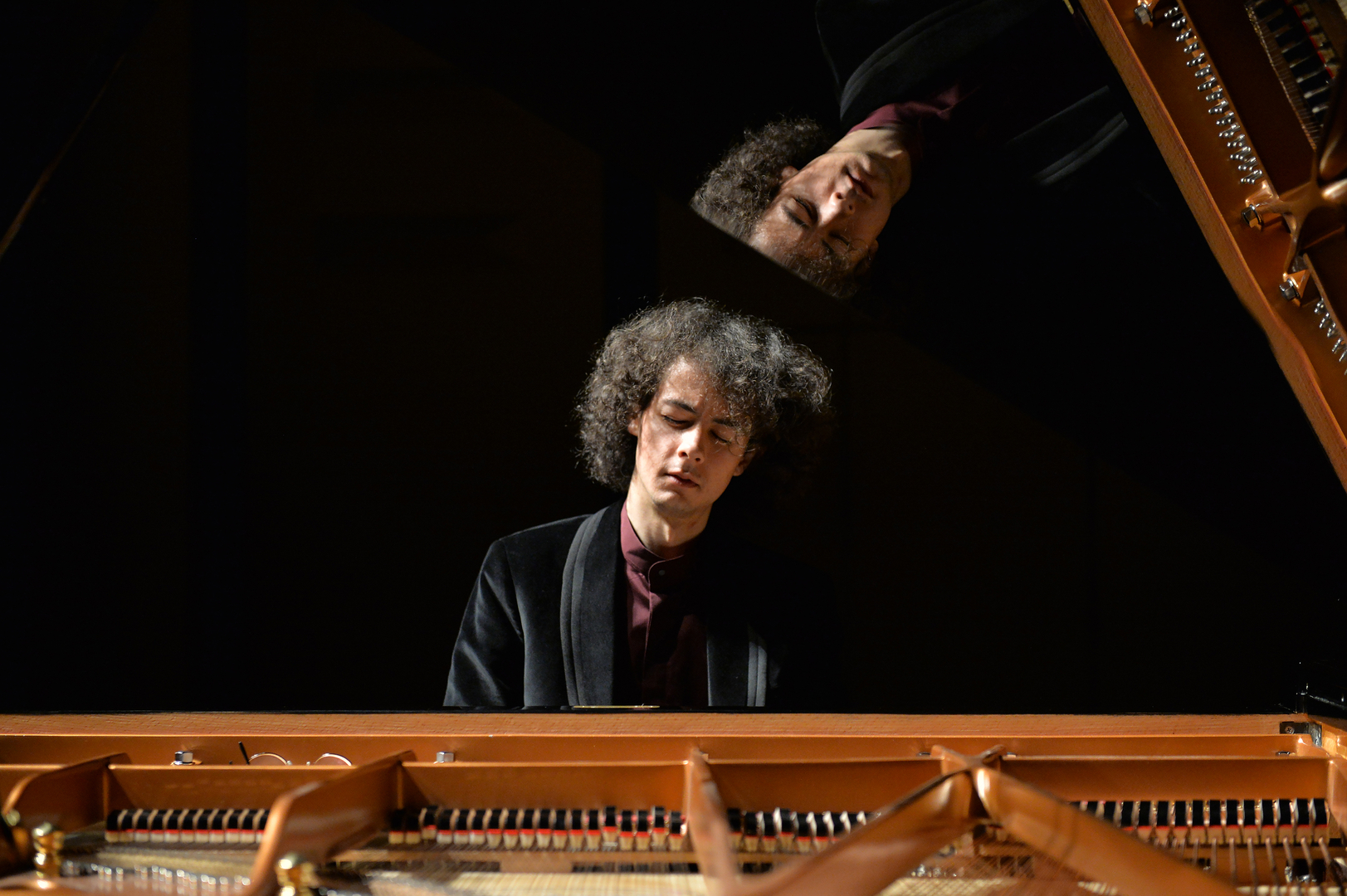Carmina Burana is a controversial work in classic music circles. One reason is that it is very popular: there are apparently over 300 recordings of it made. It is often criticised as being vulgar and sensationalist, yet of course audiences love it. So, it is no surprise that there is a pretty full house this evening to hear this work performed by the RSNO, conducted by Kensho Watanabe, with the RSNO Chorus and Junior Chorus under their directors, Gregory Batsleer and Anne Murphy.
Before Carmina Burana we have the Beethoven Piano Concerto No. 3, played by the young Turkish pianist, Can Çakmur. He won the Scottish International Piano Competition in 2017 when he was only nineteen. Since then, he has been making his name in concert halls round the world. Unfortunately, his performance is somewhat underwhelming, although he does produce some delicate playing in the Largo. His encore is more interesting: Schubert songs arranged by Liszt for the piano. Nevertheless, he is warmly received by the Usher Hall audience.
After the interval, we are blown away by the mighty opening of Carmina Burana—O Fortuna—which is so vivid and powerful Orff plays it again at the end! In between, we get the almost one hour of orchestral and choral rambles across the ancient texts which make up the work. The orchestra play them well, under the baton of Watanabe, who is an experienced opera conductor (and Carmina Burana is close to an operatic form).
Certainly the drummer has a great night, aided by five percussionists, but at times the orchestra drown out the Chorus, particularly the Junior Chorus. Similarly, the soloists have trouble making themselves heard at times, particularly the tenor Adrian Dwyer and the soprano Fflur Wyn. The star of the soloists is the baritone Stephen Gadd, who not only sings with power and authority, but acts a drunk abbot very well. It gets a warm response from the big Usher Hall audience, and despite its critics, Carmina Burana will no doubt go on to be performed many times more.
